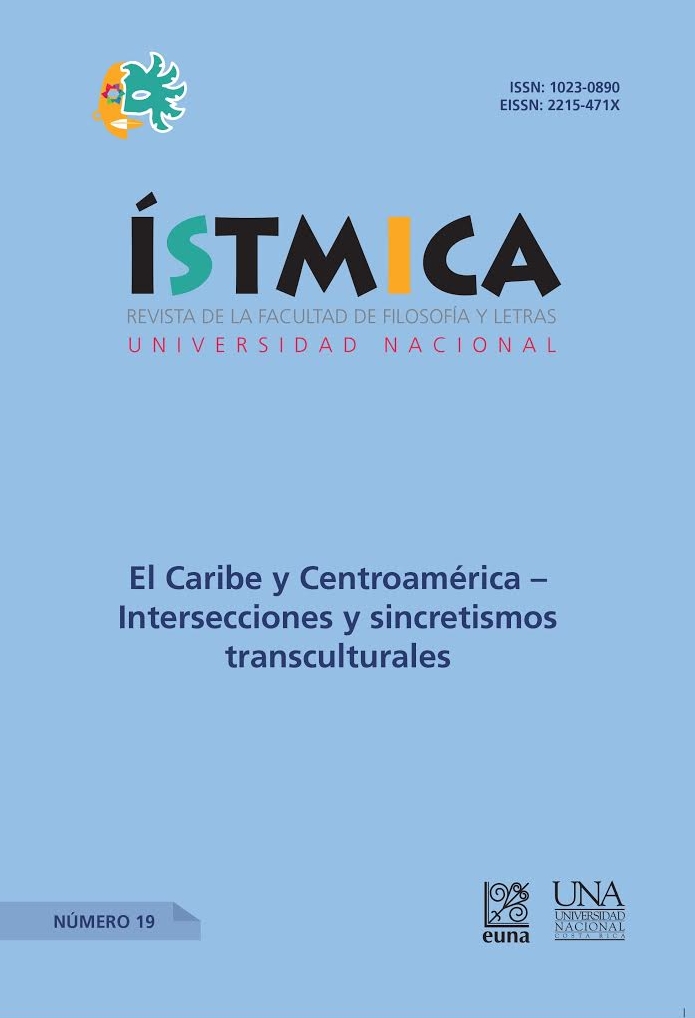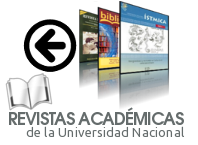De la insularidad a la continentalización: el neopolicial cubano de Leonardo Padura
DOI:
https://doi.org/10.15359/istmica.19.18Keywords:
Novel, Caribbean, revolution, social transformationAbstract
This study looks at the story and character development of detective Mario Conde, protagonist of Cuban author Leonardo Padura’s eight crime novels. In the tetralogy that begins with Pasado Perfecto in 1991 and ends with the ambitious last installment entitled Herejes in 2013, Conde acts mostly during what is known as the Cuban “Special Period,” marked by the fall of the Soviet Union, to later land in the first decade of the 21st century. This “Special Period” produced a fracturing of crime fiction in Cuba and, as a result, the officially-supported revolutionary crime fiction that was born in the early 1970s later transformed in the 1990s to become part of the neo-crime genre that the rest of Latin America had been producing since a decade before.Far from the exemplary revolutionary characters of the original genre, Padura’s neo-crime characters not only solve crimes, but also commit them themselves and evade the law. Based on the cases he investigates, Conde moves within this paradoxical behavior while he deconstructs and demystifies the greatest revolutionary discourses and policies.
References
Bogado, Fernando (16 de mayo de 2010). “ El huracán de la historia.” Entrevista. Radar Libros, suplemento literario Página/12, s/p. http://www.pagina12.com.ar/diario/suplementos/libros/10-3834-2010-05-16.html
Bosteels, Bruno (2012). Marx and Freud in Latin America: Politics, Psychoanalysis, and Religion in Times of Terror. London and New York: Verso.
Chavarría, Daniel y Justo E. Vasco (1986). Primero muerto... La Habana: Letras cubanas.
__________. (1994). Primero muerto... Montevideo: Graffiti y Cal y Canto.
Close, Glen S. (2006). “The Detective is Dead Long Live the Novela negra!. Hispanic and Luso-Brazilian Detective Fiction. Renée Craig-Odders, Jacky Collins & Glen S. Close (Eds). Jefferson, North Carolina, London: McFarland & Company, 143-161.
Epple, Juan Armando (1995). “Entrevista a Leonardo Padura.” Hispamérica: Revista de Literatura, 24.71, 49-66. 266
Hopenhayn, Martín. (2005). América Latina desigual y descentrada. Buenos Aires: Ed. Norma.
Padura, Leonardo. (2000 [1991]). Pasado Perfecto. Barcelona: Tusquets.
__________. (1994). Vientos de cuaresma. La Habana: Unión.
__________. (2007 [1997]).Máscaras. Barcelona: Tusquets.
__________. (1998).Paisaje de otoño. Barcelona: Tusquets.
__________. (2006 [2001]).Adiós, Hemingway. México DF: Tusquets.
__________. (2005).La neblina del ayer. Barcelona: Tusquets.
__________. (2011).La cola de la serpiente. México DF: Tusquets,
__________. (2013).Herejes. Barcelona: Tusquets.
Piglia, Ricardo. (1992). “Lo negro del policial.” En Daniel Link (editor). El juego de los cautos. La literatura policial: de Poe al caso Giubileo. Buenos Aires: La marca editora, 55-59.
__________. (2000). “Los sujetos trágicos. Literatura y Psicoanálisis.” Formas breves. Barcelona: Anagrama.
__________. (2001). Crítica y ficción. Barcelona: Anagrama.
Sarabia, Rosa.(2011). “Primero muerto…Una novela bifronte: de revolucionaria a neo-policial,” Pasajes: Revista de pensamiento contemporáneo, 35,(Spring), 105-112.
Scantlenbory, Marcia (2000) “Paco Ignacio Taibo II: La novela negra es la gran novela social de fin de milenio.” Caras, s/p.www.cl.caras/ediciones/paco. htlm
Simpson, Amelia S. (1990). Detective Fiction from Latin America. London & Toronto: Associated University Presses.
Song, H. Rosi (2010). “En torno al género negro: ¿La disolución de una conciencia ética o la recuperación de un nuevo compromiso político?”. Revista Iberoamericana, Vol. LXXVI, (231), 459-475.
Whitfield, Esther (2008). Cuban Currency. The Dollar and “Special Period” Fiction.Minneapolis/London: University of Minnesota Press.
Wilkinson, Stephen. (2006). Detective Fiction in Cuban Society and Culture. Bern: Peter Lang.
Downloads
Published
How to Cite
Issue
Section
License
Las personas autoras que publiquen en esta revista permiten cesión gratuita, exclusiva, de ámbito mundial de sus derechos de autoría a la Universidad Nacional (Costa Rica), conservando únicamente sus derechos morales sobre la obra publicada.
Los artículos pueden ser citados y copiados, citando a la persona autora y la fuente. Todos los artículos publicados en la Revista Ístmica están protegidos bajo una Licencia Creative Commons Atribución-NoComercial-CompartirIgual 4.0 Internacional








